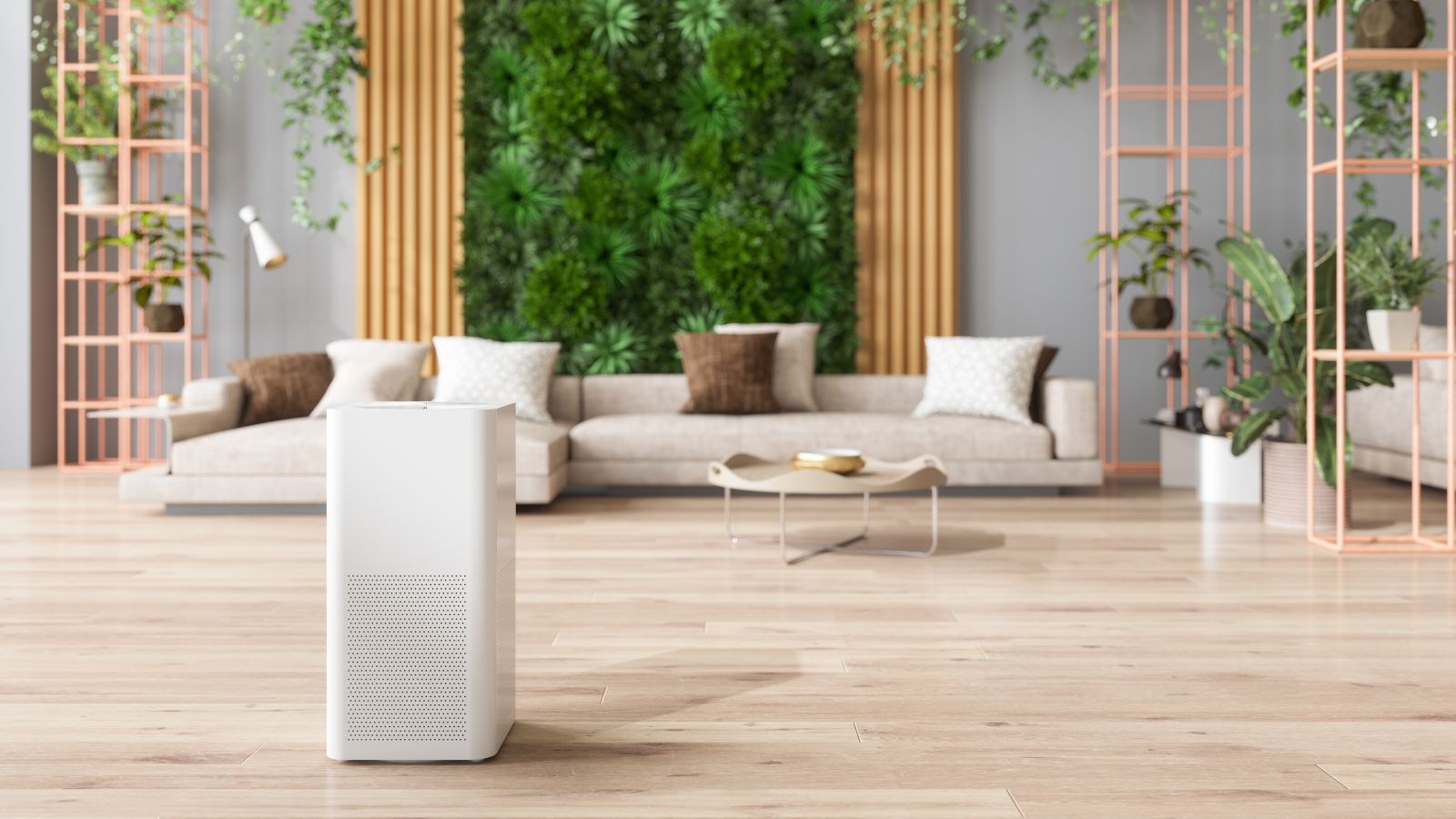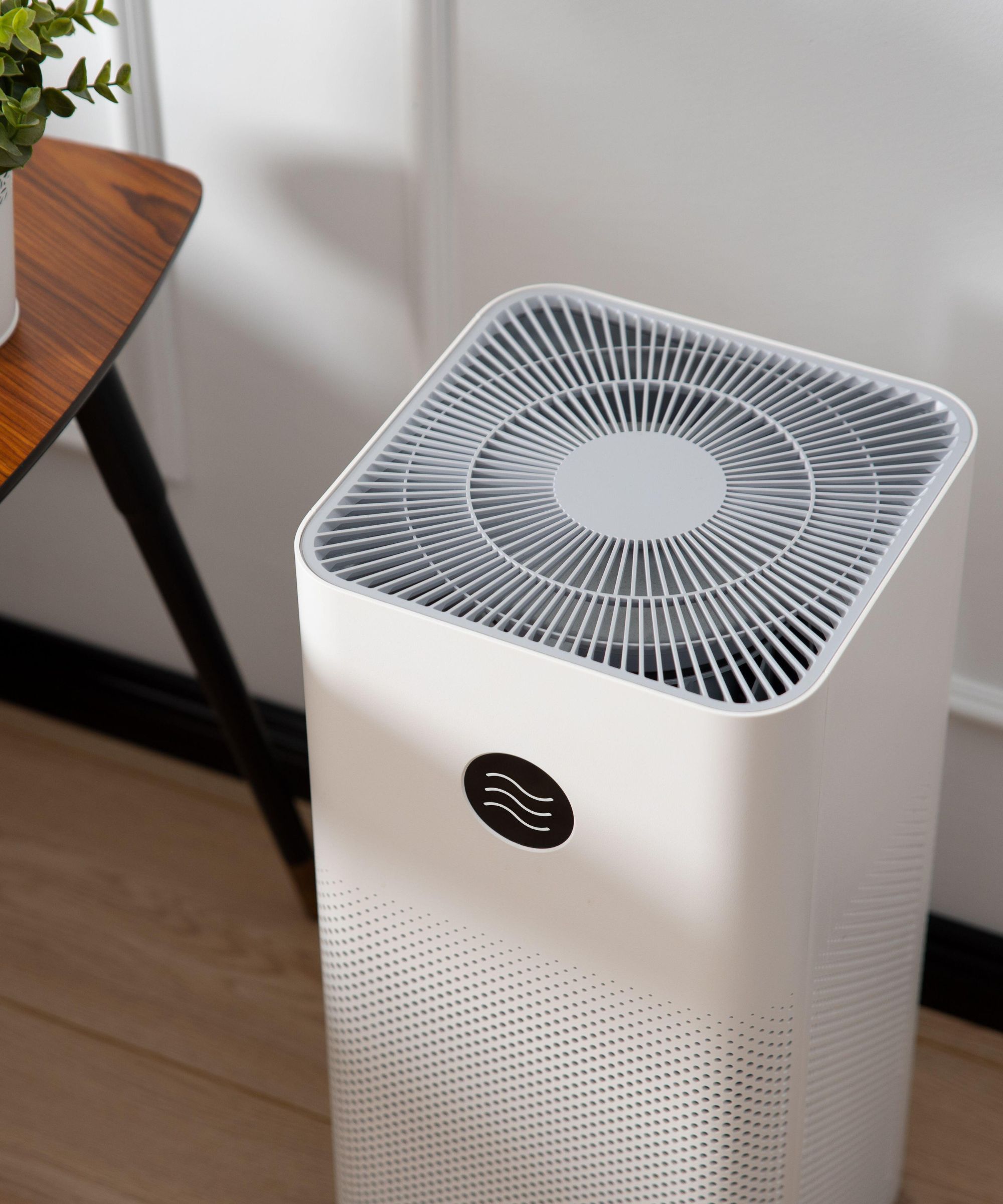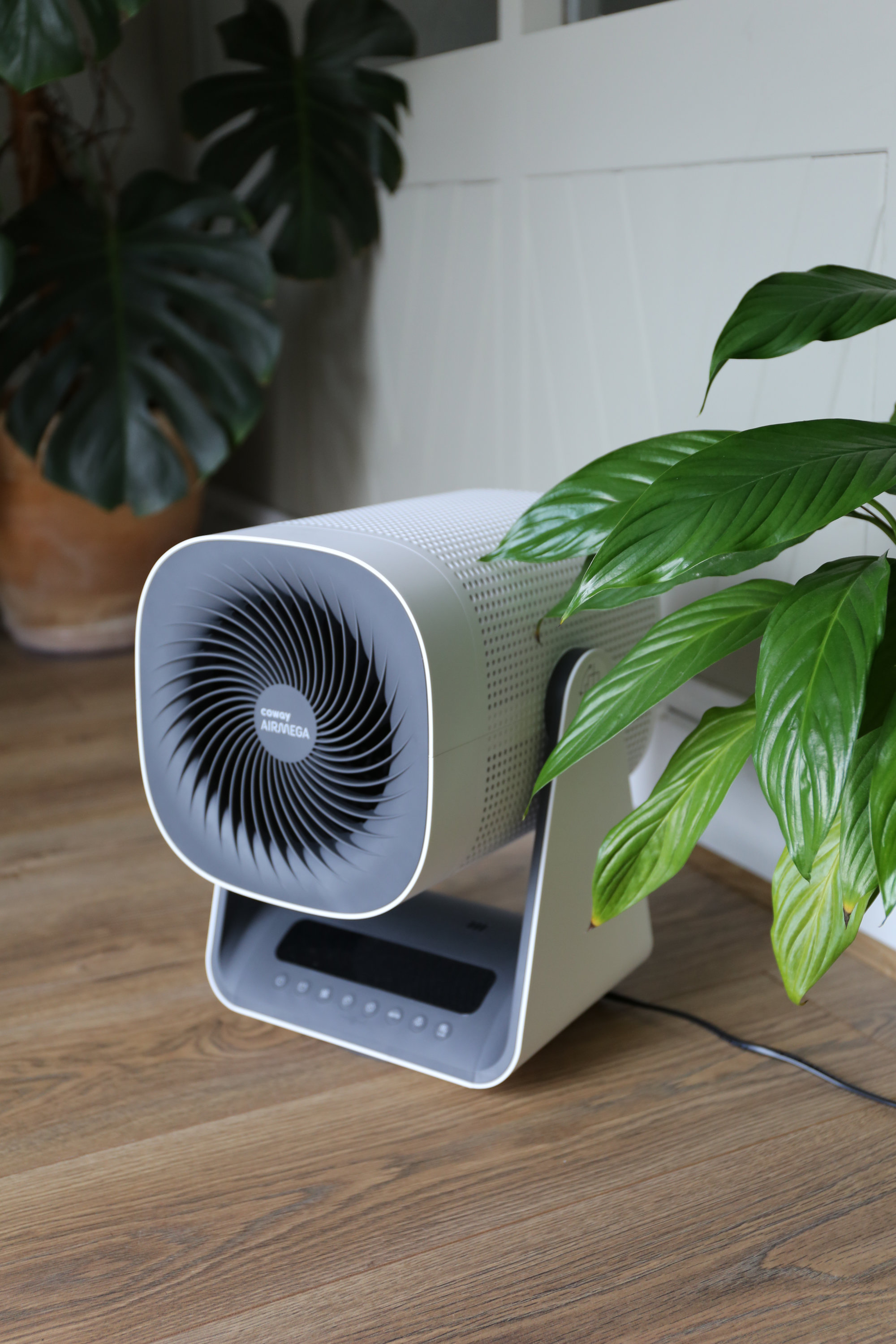Can air purifiers help with smoke? Plus, other expert advice on how to protect yourself
Air purifiers are seen as one of the best ways to protect yourself indoors from the harmful effects of wildfire smoke

With the rise in wildfires across the US and the rest of the world, it's important to protect ourselves against the harmful gases and smoke that spread as a result. Worryingly, the EPA states that wildfires have increased by 68% per acreage in 2017 to 2021 compared to 1983 to 2016. And that doesn't account for more recent years.
There are ways to protect yourself from wildfire smoke, like closing all doors and windows and staying indoors. But if you don't act fast, and if your home (like most) isn't airtight, you'll still be breathing in smoke that's made it into your home. So, investing in one of the best air purifiers might be the best option.
HVAC systems don't typically filter out as many airborne particles than air purifiers designed for that exact purpose. But how well do they help with wildfire smoke, and how do they do it? I'm Homes & Gardens' home tech editor, and I've spent a lot of time testing and covering air purifiers in different capacities. I understand how they work and what they're capable of filtering, and I spoke to the experts for a full deep-dive into whether air purifiers can help with wildfire smoke.

Can air purifiers help with wildfire smoke?
Yes. air purifiers do work to clean our air, and having one in your home is one of the most effective ways to protect yourself from wildfire smoke indoors. Research from BMC has actually shown that air purifiers (or portable air cleaners) should be treated as a 'fundamental part of [health officials'] response to smoke from landscape fires.'
During a wildfire, the advice is typically to stay home and close all doors and windows, but this step doesn't consider whatever smoke has already made it indoors or come in through a draught. This smoke can still have harmful effects on your body when inhaled.
'Air purifiers can significantly help with wildfire smoke by filtering the air, capturing harmful particles,' says Lisa Purvins, HVAC expert and owner of Pro-Tech. 'It's recommended to combine air purifier use with other measures like sealing up your home to prevent outdoor smoke from entering.'
How do air purifiers capture wildfire smoke?
'Air purifiers suck in the air from the room, pass it through a series of filters that catch and remove harmful particles – including those found in wildfire smoke – and then release the cleaned air back into the room,' explains Yashar Mosaferi, president of Klondike AC.
Design expertise in your inbox – from inspiring decorating ideas and beautiful celebrity homes to practical gardening advice and shopping round-ups.
Wildfire smoke is made up of differently-shaped particles that an air purifier filter is able to trap while still allowing air to flow through. 'Wildfire smoke contains a complex mixture of particles, but the most harmful are those in the fine and ultra fine categories,' warns Lisa.
'The most concerning is PM2.5—those particles 2.5 microns or smaller. These tiny particles can travel deep into the lungs, and into the bloodstream, where they can cause severe damage to human health,' Yashar notes. These particles can even be as small as 0.4 microns, so to be able to effectively deal with wildfire smoke, you'll need an air purifier that can capture particles smaller than around 0.4 to 2.5 microns in size.
'HEPA filters are the most effective at capturing these tiny particles. They are designed to trap 99.97% of particles as small as 0.3 microns, which includes both PM2.5 and PM10,' Lisa adds, as PM10 is another common particle size in wildfire smoke.

What air purifier do I need for wildfire smoke?
From my experience of testing, reviewing and writing about air purifiers, I can confirm the necessity of a HEPA filter. It's guaranteed protection against the harmful particles in wildfire smoke. This is why it's so important to know how to choose the right air purifier.
Air purifiers will state whether they utilize a HEPA filter. Companies have to go through strict standardized guidelines to officially label it a HEPA filter, so be sure to look out for phrases like 'HEPA-style' or 'like HEPA' – as these will likely not be able to capture super-fine particles like those in wildfire smoke.
'While other filter types might capture larger particles, HEPA filters offer the highest level of protection against wildfire smoke,' Lisa confirms.
Logan Taylor, 10-year home improvement specialist and founder of Dazzle Company, recommends the Coway Airmega Mighty AP-1512HH (available at Amazon and Walmart). We've actually reviewed the Coway Airmega Mighty too and we were impressed by its eco mode (that responds to your air quality) and odor reduction, both of which are ideal features when dealing with smoke.
It's also important to choose an air purifier with a high CADR (Clean Air Delivery Rate). This number shows how quickly it can clean your air can clean the air of a space; the higher the number, the better. Ideally, you'll want a CADR of 300 air changes per hour or higher - and you can often find this info on the online product page.
Andy Taylor, home specialist of 25 years and founder of Paramount Stone, recommends the IQAir HealthPro Plus (available at Amazon). 'It has a HEPA filter along with a pre-filter and an activated carbon filter, which together can capture not only the fine particles but also the gases and odors associated with wildfire smoke,' he says.
Personally, after testing many of the best air purifiers, I'd recommend the Molekule Air Pro or the Molekule Air Mini+. Unlike most purifiers, Molekule's lineup includes unique PECO technology that actually disarms and destroys harmful molecules within organic matter. They're also the only air purifiers that are FDA-approved as Class II medical devices. We've reviewed the Molekule Air Pro (and I'm currently testing the Air Mini+), and both of them have proven highly effective for handling all sorts of harmful airborne particles - including smoke.
To better help yourself in the battle against wildfire smoke, learn how to improve your air quality indoors and the best place to position your air purifier.

Dan is the Home Tech Editor for Homes & Gardens, covering all things cleaning, smart home, sound and air treatment across the Solved section. Having worked for Future PLC since July 2023, Dan was previously the Features Editor for Top Ten Reviews and looked after the wide variety of home and outdoor content across the site, but their writing about homes, gardens, tech and products started back in 2021 on brands like BBC Science Focus, YourHomeStyle and Gardens Illustrated.
They have spent more than 200 hours testing and reviewing vacuums for Homes & Gardens, and have even visited Dyson's engineering labs for the full low-down of the ins and outs of our trusty cleaners.
Dan has a BA in Philosophy and an MA in Magazine Journalism. Outside of work, you'll find them at gigs and art galleries, cycling somewhere scenic, or cooking up something good in the kitchen.
